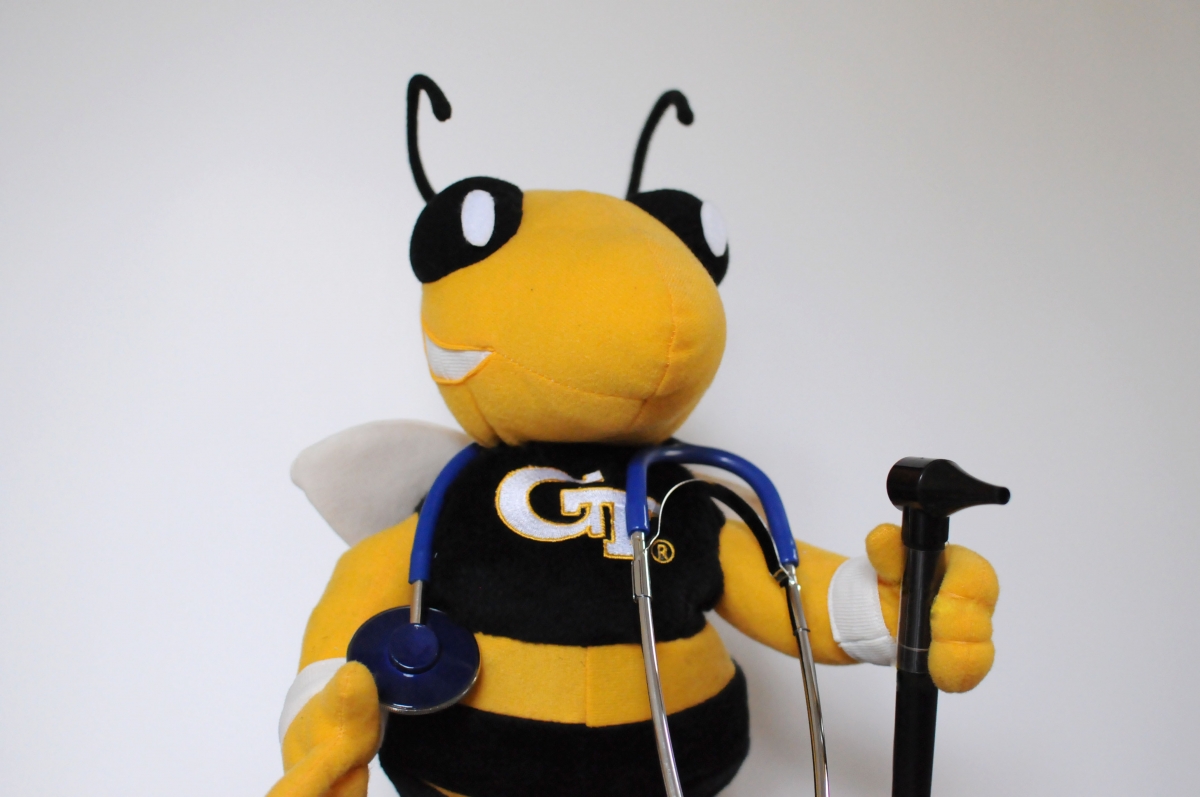
A minor in Physiology is available to all Georgia Tech students, including Biology majors. The Physiology Minor focuses on anatomy and physiology, with emphasis on movement and the physiological processes that support motor activity in humans and also non-human animals. Physiology is the study of the integration of cellular and molecular processes into the functions of the systems of the body. The study of physiology lays the groundwork for understanding the pathophysiology of disease, the responses of the body to growth, development and environmental stressors, the design of biologically inspired robotics, and the interfacing of the human body to prosthetics, orthotics and exoskeletal devices for rehabilitation. This program prepares students for advanced training in biomedical engineering, basic research on motor system, rehabilitation sciences and other medical specialties.
The Physiology minor consists of 6 credits of required courses (BIOS 3753 Human Anatomy and BIOS 3755 Human Physiology) and an additional 9 credits of electives, including a minimum of 6 credits of approved BIOS coursework (see list below) and up to 3 credits of approved non-BIOS coursework from a restricted list of courses (see list below). At least 9 credit hours must be at the 3000 level or higher, and up to 3 credits can be BIOS Special Topics courses and up to 3 credits can be BIOS 4699 Undergraduate Research. All Special Topics and Undergraduate Research must be approved by the Physiology Minor advisor.
All courses counting toward the minor must be taken on a letter-grade basis and completed with an overall grade point average of at least 2.00. Students may not double-count courses towards more than one certificate or minor. A course may count towards the student’s major and minor if the course:
- The course is not fulfilling a general education (Core) IMPACTS areas (formerly known as Core Areas A through E) in the student's major degree program
- The course is fulfilling a designated block/blocks of courses outside the student's major field of study, as determined by the Major advisor; please confer with your major advisor to determine what block of courses may be double counted between your major and minor
In most cases, free electives and technical electives may be used towards minors. Further information is available from the Physiology Minor advisor, Dr. Adam Decker (email for appointment).
To declare a minor in Physiology, first complete the change/add minor form on the registrar’s website and email the Physiology Minor advisor to confirm your understanding of the minor requirements and your plan to complete the minor. You should declare your minor as soon as you decide to pursue it, rather than waiting until you have completed the coursework for the minor.
Required courses for the Physiology minor (6 credits)
- BIOS 3753 Human Anatomy
- BIOS 3755 Human Physiology
BIOS electives: A minimum of 6 credits from the list below
- BIOS 2500 Introduction to Sport Science
- BIOS 3000 Survey of Medicine
- BIOS 3450 Cell and Molecular Biology (Note that Biology majors cannot count BIOS 3450 toward the Physiology minor.)
- BIOS 3451 Cell and Molecular Biology lab (Note that Biology majors cannot count BIOS 3451 toward the Physiology minor if BIOS 3451 is being used to fulfill the Biology major core lab requirement.)
- BIOS 3754 Anatomy Lab
- BIOS 3756 Physiology Lab
- BIOS 4100 Exercise Physiology
- BIOS 4200 Kinesiology
- BIOS 4238 Ion Channels
- BIOS 4400 Human Neuroanatomy
- BIOS 4418 Microbial Physiology
- BIOS 4440 Human Pathology
- BIOS 4464 Developmental Biology
Course descriptions and prerequisite information for BIOS courses
Non-BIOS electives: A maximum of 3 credits from the list below
- BMED 3100 Systems Physiology
- ECE 4781 Biomed Instrumentation
- LMC 3318 Biomedicine & Culture
- ME 4757 Biofluid Mechanics
- ME 4758 Biosolid Mechanics
- PSYC 2230 Abnormal Psychology
- PSYC 3020 Biopsychology (credit not awarded for both PSYC 3020 and PSYC 4020)
- PSYC 4020 Biopsychology (credit not awarded for both PSCY 3020 and PSYC 4020)
- PSYC 4090 Cognitive Neuroscience
- PSYC 4100 Behavioral Pharmacology
- NEUR 3001 Cell and Molecular Neuroscience


